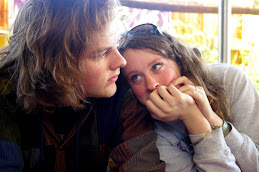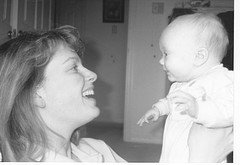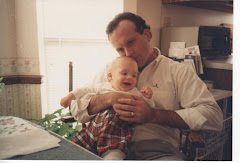With Hurricane Ike bearing down on the Texas coast, evacuations are underway. This means shelters across the state will start receiving visitors today. I suspect the folks fleeing Ike's fury may be decidedly different, culturally, from many of those who hit the road ahead of Gustav. Nonetheless, host cities should be prepared.
Someone I know personally who worked exhausting hours in a Gustav shelter has expressed her frustrations in a letter to the media.
Her essay is on the brink of going viral. I know we all get e-mails from people vouching for the veracity of fantastic claims therein.
I am well acquainted with the author of this letter. I can also tell you that, based on my experiences in the shelters following Katrina and Gustav, I believe every word of it.
There were problems in some of the shelters. No one denies that. Most of the people in them were good, decent and honorable.
This letter, I can assure you, is an accurate representation of an alarming percentage of the people for whom volunteer care was provided:
I am a nurse who has just completed working approximately 120 hours as the clinic director in a Hurricane Gustav evacuation shelter in Shreveport, Louisiana over the last 7 days. I would love to see someone look at the evacuee situation from a new perspective. Local and national news channels have covered the evacuation and "horrible" conditions the evacuees had to endure during Hurricane Gustav.
True - some things were not optimal for the evacuation and the shelters need some modification. At any point, does anyone address the responsibility (or irresponsibility) of the evacuees? Does it seem wrong that one would remember their cell phone, charger,cigarettes and lighter but forget their child's insulin?
Is something amiss when an evacuee gets off the bus, walks immediately to the medical area, and requests immediate free refills on all medicines for which they cannot provide a prescription or current bottle (most of which are narcotics)?
Isn't the system flawed when an evacuee says they cannot afford a $3 co pay for a refill that will be delivered to them in the shelter yet they can take a city-provided bus to Wal-mart, buy 5 bottles of Vodka, and return to consume them secretly in the shelter?
Is it fair to stop performing luggage checks on incoming evacuees so as not to delay the registration process but endanger the volunteer staff and other persons with the very realistic truth of drugs, alcohol and weapons being brought into the shelter?
Am I less than compassionate when it frustrates me to scrub emesis (clinical word for vomit - DR) from the floor near a nauseated child while his mother lies nearby, watching me work 26 hours straight, not even raising her head from the pillow to comfort her
own son?
Why does it insense me to hear a man say "I ain't goin' home 'til I get my FEMA check" when I would love to just go home and see my daughters who I have only seen 3 times this week?
Is the system flawed when the privately insured patient must find a way to get to the pharmacy, fill his prescription and pay his copay while the FEMA declaration allows the uninsured person to acquire free medications under the disaster rules?
Does it seem odd that the nurse volunteering at the shelter is paying for childcare while the evacuee sits on a cot during the day as the shelter provides a "day care"?
Have government entitlements created this mentality and am I facilitating it with my work? Will I be a bad person, merciless nurse or poor Christian if I hesitate to work at the next shelter because I have worked for 7 days being called every curse word imaginable, felt threatened and feared for my personal safety in the shelter?
Exhausted and battered but hopefully pithy,
Sherri Hagerhjelm, RN
Sphere: Related Content
Thursday, September 11, 2008
Subscribe to:
Post Comments (Atom)















2 comments:
First let me say that I was not at the shelter, but I did evacuate---using my personal vehicle and gas for which I paid $3.78 a gallon. Not being able to drive long distances nor having the funds to rent a hotel room that would take animals, I imposed on friends who gladly took me in.
Do I believe the reports in the letter? ABSOLUTELY. I teach. Probably some of the same families.
Parental irresponsability costs millions; not just in terms of evacuations.
The mind-boggling cost of renting busses (of course they must be air-conditioned and contain reclining seats, a bathroom, and in some cases even DVD players), hiring drivers, and buying gas to get to the centers is just the tip of the iceberg. What about the people who were evacuated on trains and planes? All evacuees are fed, given a place to stay, at least a cot on which to sleep,and free medical care, which includes the prescriptions.
Some appreciate the help while others acontinue to lie and abuse the system.
Could the Federal Government track social security numbers for those who insist they NEED this service? Why don't authorities on both ends put names and ss#'s into a database to see if some of these evacuees have outstanding warrants or have been convicted of felonies or violent crimes? What about registered sex offenders?
It seems to me if the government can and does trace information on some citizens, it should at least cross-reference IRS forms with food stamp records, free lunch forms, welfare, and free medical programs. All require social security numbers,yet no information is ever verified. What a joke to think that everyone is honest in filling out the requests. What a waste of tax- payer money.
Why not have these evacuees scheduled to work at the centers where they are staying? Many of them are able-bodied. They could help serve food, pick up trash, play games with the children, etc. Instead, many of them treat it as a vacation and view the volunteers as their hired help or even worse.
After Katrina I took advantage of the perscription drug program --I had been evacuated for over three weeks and was running out of my medicine. I had to prove that I actually had a perscription for certain medication, and that it is time to refill it. They filled the perscription for me for one month at no cost. I was delighted. I offered to pay, but they were not set up to accept money.
Social responsability is taught at home. Unfortunately, many of these types of people have been taught to get something for nothing their entire lives with no responsability attacched. Why wasn't the child whose parent neglected to bring insulin charged with neglect?
Why aren't people who continually demonstrate this lack of responsability cut off from all free programs? If parents abuse their children, the parents should not be given free housing. If they are convicted of violent crimes they should not receive government assisted housing. If the students do not attend school and pass, the family should not be given financial assistance in the form of free breakfast and free lunch. If people were made to be accountable for their behavior, that behavior might be more socially acceptable.
In my humble opinion, based on years of first-hand observation and experience with covering stories on gov't assistance programs, socially & economically disadvantaged persons, etc. I can say that many programs have suffered from the law of unintended consequences. There are people who truly need and benefit from such things and there are those who abuse such help.
Such things have fostered an attitude of entitlement and this attitude crosses all racial divides. Awareness of personal responsibility simply escapes some folks as it is as foreign a concept to them as nuclear fission is to me. At some point in time, they had something occur during the development of their core beliefs that tells them it's okay to abuse charity or assistance and get as much as you can anytime there's an opportunity.
Like I said, this is the result of unintended consequences. But while I'm on this tear, let me share a quick note about what to do about it.
My wife was telling me that one of her biz-clients headed up some volunteer efforts at a church for some evacuees. But instead of just providing food, shelter and basic needs....she provided them with "mandatory participation". Instead of letting them sit around or lie around or be idle....she welcomed them by the busload and started assigning duties.
She'd ask: Okay...do I have anyone who cooks? And if she didn't get any response...she'd ask one-by-one "Do you cook for your family?" When they replied "yes"...she told them...great: you're going to help out in the kitchen or on the foodline or helping with loading / unloading donated food. Others would be in charge of helping with laundry or issuing cots & blankets...
In other words... she didn't treat the evacuee's as victims...she got them involved in taking care of their own situation to some degree.
This brief example is what is lacking in the current methodology of disaster relief and government assistance. No one expects someone who has been traumatized or in shock to be in shape to take care of themselves....but able-bodied people can participate in helping take care of themselves, no matter what the circumstances may be.
Just my 2 cents...
Post a Comment